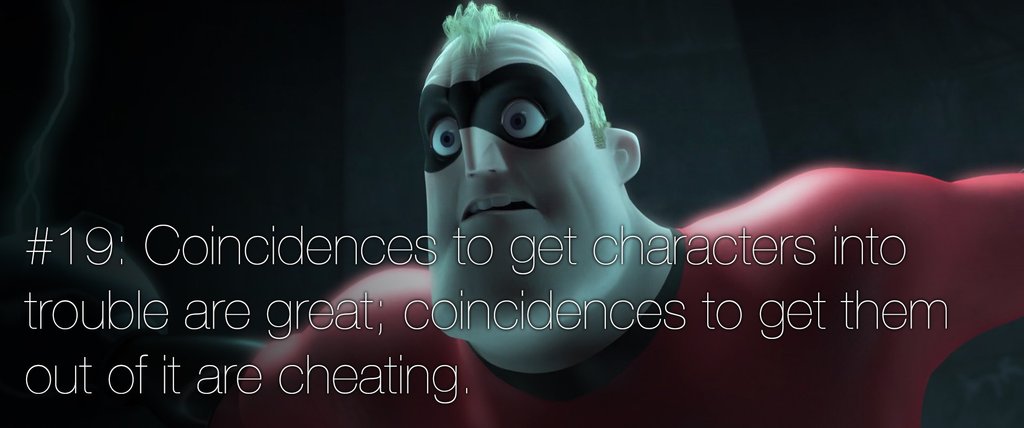The past week has been one unique in my life. I had the distinct pleasure of spending the better part of Friday, at the end of August, with an incredible friend and kindred spirit. We had a discussion so distinct that it will forever remain clear in my mind.
 We had a discussion about what truly drives success in entrepreneurship. The root. Quickly tossed aside were the conventional solutions society likes to discuss: capital, education, more developers, creativity, patents or intellectual property… Kindred spirits are we, because our approach to life, as entrepreneurs ourselves, is not that of your typical business or startup founder, but what makes founders successful: how to enable, encourage, and excite individuals to innovate. We joked that we are “macro entrepreneurs” – not as interested in the one as we are in the whole.
We had a discussion about what truly drives success in entrepreneurship. The root. Quickly tossed aside were the conventional solutions society likes to discuss: capital, education, more developers, creativity, patents or intellectual property… Kindred spirits are we, because our approach to life, as entrepreneurs ourselves, is not that of your typical business or startup founder, but what makes founders successful: how to enable, encourage, and excite individuals to innovate. We joked that we are “macro entrepreneurs” – not as interested in the one as we are in the whole.
Scott Robinson, a man who had an incredible impact on my life, passed a week ago.
I’ve spent the past week trying to figure out how to personally honor him. To thank him.
It’s the little, personal affects that marked our relationship that now make me smile with a tear in my eye. The exceptional tumbler of bourbon I had one night in remembrance. The poker chips from our last game, still resting on the back seat of my car. The pocket square that will now, always adorn my sport coats in his honor. The corner of the Starbucks he and I frequented, independently, and got to know one another with a familiar nod and a “good morning” before finally meeting one another with a, “so why are you always working from a coffee shop?”
Why indeed. For the very reason that we connected with one another, Scott and I were kindred spirits because of the way we work. Never shying from the opportunity to meet incredible people, doing incredible work, who have that incredible quality which drives entrepreneurship. In fact, seeking such opportunities in coffee shops of all places.
His involvement in the community as a macro entrepreneur is clearly evident in his work as a leader of Startup America and with TEDxYouth. His impact on Austin through such organizations as the Chamber of Commerce and ATI is palpable. As I turned my thoughts to how to honor him more publicly, I could think of nothing better than to share with you the discussion we had last Friday; a piece of our shared passion to make every new venture more successful.
Article Highlights
What is at the root of the most successful businesses?
“You don’t start by planning for the exit.”
Friday, we explored the idea that most important, more important than anything else, is knowing what’s at the heart of your partner. This is true of marriage. It’s true of friendships. It’s true of business. I’m sure it’s been said or proven, I’m not bothering to look it up for this story, but I’m certain that most businesses and startups fail for no reason other than irreconcilable differences between co-founders. Scott and I posited that you could exponentially increase the success of a venture by stepping back from the business, forget the idea, forget the model, forget who your customers might be, throw your concerns for capital out the window, and sit down with your partner and ask, “Why are you doing this?”
Give yourself a couple hours with your co-founder as the answer is not that which first comes to mind. Get past the business-centric answers drilled into you from years of formal education. You aren’t doing this because you are good at it, you know how, or even because it’s what you love (not directly anyway). Forget what invested advisors and mentors encourage. You aren’t doing what you do because there is a gap in the market, a product/market fit, or customer validation.
You aren’t in business because you have a unique idea or a creative new solution. Bring yourselves all the way down to the fundamental needs; what’s driving you? I don’t know if we’re right, but we surmised that there are 4 types of entrepreneurs and your success, or failure, as partners is entirely dependent on having the same fundamental foundation.
The 4 Types of Entrepreneurs
1. The business owner
One could obviously characterize these as the local business owners or restaurateurs with which you are probably familiar, the people who are in business to have a business. I want to distinguish these from the entrepreneurs who are in business to make a living; these are the people who do what they love because it’s who they are. Knowing if YOU are this type of entrepreneur is critical to your success as that knowledge helps you identify where and how to engage your community. Your personal brand is your business; your customers come from your community.
Don’t misunderstand this approach to be limited to small business owners. Large companies can too have a business owner at the helm. Was Dell best characterized as such? How about Ford, when Henry Ford helped invent manufacturing? I’m sure you’ve heard of one of the most famous business decisions in history? Ford’s decision to raise the working wage of his employees. Hold on to that thought because it could be argued that Ford epitomizes the “business owner” but it could also be said that Ford epitomizes the 4th type. I didn’t say we figured out all the answers to this idea over coffee, only that it was a thought provoking conversation that I’d like to continue.
2. A comfortable living
Many entrepreneurs start their own venture knowing (or believing) that they can make a good living. Is your motivation that living? You may be inventing a new piece of software or building a world class sales organization; regardless, if your interest is in paying yourself, have that conversation now.
By contrasting the two, we can better see how this likely is the root of success in entrepreneurship. If you are a venture capitalist, ready to invest millions in the idea behind the business founded by an entrepreneur seeking a comfortable living… what does that tell you? Of course, the “business owner” is also going to pay his or herself but the business owner is focused on owning that business; in spite of the costs or returns, it’s who he is. This entrepreneur does this for a living and that motivation drives the success of such ventures.
It might be said that consultative ventures are driven by entrepreneurs with this spirit; ventures wherein value can clearly be created, delivered, and returned. With such clarity, these entrepreneurs attract the right talent to their team, set clear expectations with clients and customers, and excel.
3. Seeking the exit
A step removed from the business owner making a living is the founder looking for a return. An exit. Most startups, perhaps, fall into this characterization: brilliant entrepreneurs who have identifies a market gap they can fill more efficiently than the incumbents and corporations now too slow to innovate. Build your MVP, grab a share of the market, and get the attention of suitors.
You might argue that this is the type of entrepreneur that encourages everyone else. These entrepreneurs show that it’s not only possible to be successful, it’s attainable. But again, weigh the pros and cons: if you are a VC looking to evolve an entire industry or you are the best data architect in your field, you may not want an exit; you may not want the work to cease before the potential you believe exists is fully realized. Are you as likely to be drawn to the entrepreneur who wants to get something in market and exit when sufficient value is created? No, because you fall into the forth category…
4. Determined to change the world
Imaging the reaction to market validation of something like twitter… sitting in a coffee shop and asking people if the venture was a good idea. Really?? Why would I share the nuances of my life in 140 characters or less? What’s the business model?? Have you ever thought of how Google started? Or go further back and explore why Jerry Yang and David Filo started Yahoo! Because they wanted to.
There is a class of entrepreneur that just wants to do. Raising capital is merely a means to that end, not validation nor even necessary, for most. These are the entrepreneurs who aren’t really even building a business so there is no business at which to fail, no market that needs to be found. They are the individuals who live and breath their livelihood; like the first group, they are their business, and yet, these aren’t of their business – their business is a side effect of their ambition. Of course, it’s easy to muddy the boundaries of these definitions; I’m sure could argue that Ford was just as much a 2, as a 1, or 4. Is Elon Musk, with his ambition for space, a four or a brilliant one who can’t help but create incredible businesses where gaps and opportunities, obvious to him, are clear?
The Root of Success in Entrepreneurship
At the root of what sparks the most successful businesses, we questioned, is KNOWING, clearly, in which of these groups you belong. Determined to change the world at any cost, these are the ideas that come to market because they are of the entrepreneurs, not just born of them. These are the individuals who don’t conceive of failure, for them, there is no such thing. They never take no for an answer; the doubt of a VC or potential partner isn’t discouraging nor a detraction, it’s an introduction to someone who just doesn’t yet get it.
And therein is a hint at why this fundamental question is so pivotal. Your ability to attract the best talent and a team, your appeal to various capital sources, the interest in what you are doing from potential partners, is all dependent on the very same foundation.
Does this idea apply to everyone? If you are starting your career, what does this motivation say of you? What does it say to potential employers? How might you be looked on if you are a #4 at heart but an employer simply wants a #2 who wants to make a good living?
And of course, given the work Scott and I were doing fairly independently of one another; what do these philosophies mean for economic development? Venture capital? And innovation? If the culture of your city, of your community, is that of #1, are the resources, experiences, and individuals available to support those who want to change the world? If not, what can we do to ensure every entrepreneur, of every motivation, finds the support and resources they need to excel??
A venture capitalist asking your exit possibilities when you’re still at your seed stage is clearly looking for the third type of entrepreneur. If that’s you and you too are seeking that nearer term exit and return, you’ve overcome the most important consideration in the mind of that VC. But if you can’t imagine planning your way out, or won’t cash out prematurely, you’ll go unfunded – with THAT VC. I don’t know what your business model is, you have no customer validation, no traction, I don’t even know your idea yet, if YOUR fundamentals don’t align with your co-founder, potential employees, partners, and capital sources, you will struggle. You will fail.
“You don’t start by planning for the exit,” Scott chuckled, as we talked about how to build a great venture. The words seem haunting now and yet, in the time we shared, I found proof of this idea, that the type of entrepreneur is all that matters, in those words. Our relationship was a successful venture and knowing him, an incredible return on my investment not because of what we were doing but because of our respective motivations. What was in it for us was not the exit, not owning a relationship, nor cashing out as friends, but in the experience; the journey, determined to change the world.
I’m honored to have known such a man, a man who did just that.



Thank you, Paul, for honoring Scott in two ways that he would have wanted – with well written words, and attesting to his passion for entrepreneurs. Day or night, there was not one that passed that Scott and I spent together that he did not enthusiastically speak of the talented people in Austin, his love of his community, and his dreams to build it and leave an impact here. I didn’t want to write anything myself yet because he was such a good writer 🙂 but you have honored him well, here, my friend.
Jenn Gooding what I’m considering now is what we do about these ideas. Whether or not entirely accurate, I think they are thought provoking, relevant, and at least to some extent, spot on. Such a memorial to Scott, this post, is woefully insufficient. How do we take these ideas and the many other aspirations he had, and see them through?
I really enjoyed this, Paul, and just like our other chat, it has me thinking a little bit differently. I didn’t know Scott, but he sounds like someone I would have like to have known. Thanks for this.
seobrien Jenn Gooding We will meet this week again and hatch a plan – if anyone can do it, we can!
Paul, I find your thought process an interesting approach. You spoke about two items: a) types of motivation, and b) sync among co-founders. To the type, I would also add other items such as Boredom, or Adventure.
I was thinking about how would you rank the different motivations and so more I think, it appears you cannot. There are people in all four categories been highly successful in a Machiavelli sense. Even, at least in my mind, the bottom feeders of entrepreneurs are those just out for the quick buck and a quick and dirty product, have been extremely successful. (In Germany for a long time the driver was copycats, clones, scams, and various borderline fraud models (Abofalle for instance). It depends strongly on the environment. If you live at the Coasts, you can start a business on a lofty idea. This is almost impossible in Austin. In Europe you cannot even start a business on type 2 or 3, because of the difficulty to break into a closed class of establishment, and lack of venture funding (which is why pretty much most of businesses making it there, were of the less ethical kind because they had an immediate revenue stream.)
To the second point, I am not sure if all founders have to be in sync on that. But much more important, one has to be realistic: if you seek outside funding, there needs to be a lucrative exit play for investors, otherwise you run a charity. I think the commonality of all types is a strong drive to turn around a vision into a deliverable – making it happen.
“I’m certain that most businesses and start ups fail for no reason other than irreconcilable differences between co-founders. Scott and I posited that you could exponentially increase the success of a venture by stepping back from the business, forget the idea, forget the model, forget who your customers might be, throw your concerns for capital out the window, and sit down with your partner and ask, ‘Why are you doing this?'”
Funny for a self-proclaimed macro entrepreneur to asks what sounds like a micro entrepreneurial question.
It might not be “turtles all the way down” as the Chinese saying goes, which can’t be true, but would work in this instance.
However, if your question is true for both macro and micro entrepreneurial then it might be truthful to say “its fractals everywhere.”
I wonder how many “irreconcilable differences” are just misunderstandings in our communication masquerading as differences.
If that is true than “you could exponentially increase the success of a venture by” increasing your understanding of how we communicate. In particular, how to know when you are communicating well, what to do when you find out you are not and how to use this awareness when it is needed the most – in times of conflict.